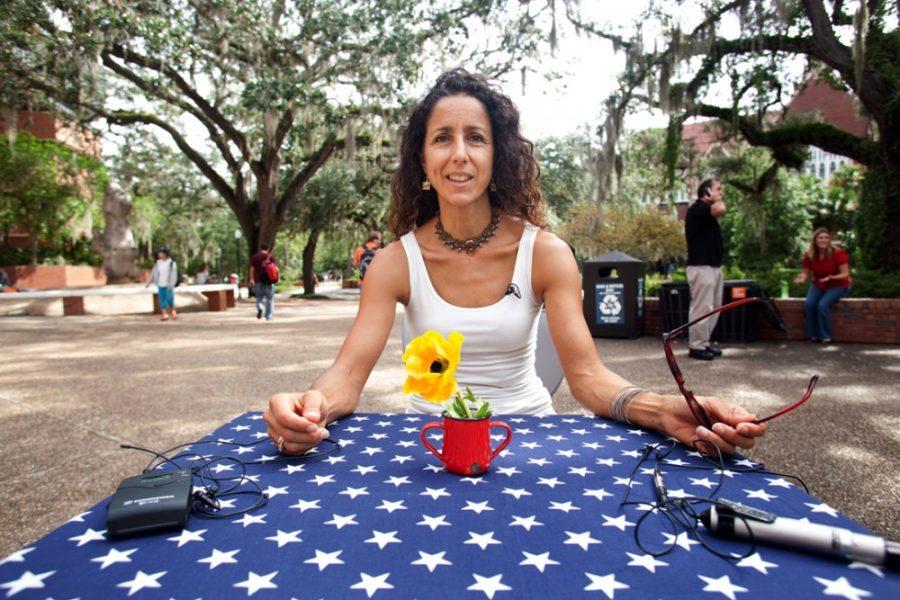Dissatisfaction with the political process and with our representatives in Washington runs deep and wide through the American public. According to research conducted in 2014 by the Pew Research Center and the Gallup Poll, only 24 percent of the public trusts the government, while Congress maintains an abysmal 15 percent approval rating.
One popular explanation for the ever-increasing dissatisfaction in our current climate is political polarization. Partisan vitriol rises every year, with deafening shouts from both sides of the aisle muting bipartisan efforts and similarities.
The UA banded together with the National Institute for Civil Discourse, Associated Students of the University of Arizona, the School of Government and Public Policy, No Labels, the Honors College, and Philosophy, Politics, Economics and Law to present Emmy-nominated Julie Winokur’s documentary, “Bring it to the Table.”
“Bring it to the Table” is a project Winokur launched in 2012 as a response to a comment made by her 17-year-old son.
“He told me I was politically intolerant,” Winokur said. “He told me, … ‘If the other side had a good idea, you wouldn’t know it, because you wouldn’t be listening.’ When he said that, it made me stop and consider my own role in partisanship and, in general, all of our roles in what’s going on nationwide.”
Funded via Kickstarter, “Bring it to the Table” is a grassroots, community campaign that works to engage and empower participants in breaking down hyper-partisan divides through dialogue. According to PPEL senior Elena Gold, one of three student interns at NICD working to bring this project to the UA, politics is something we should be able to discuss in mixed company.
“Political discourse is incredibly important, and we do a disservice to our country and to ourselves when we avoid talking politics around those with opposing opinions,” Gold said. “Hopefully the film [will be] able to deeply affect the attendees of the event and can spread tolerance and acceptance throughout our campus.”
Though Winokur said she believes many problems exist in our current political climate, not all of the blame can be placed on politicians and policymakers.
“On a citizen to citizen level, we’re also part of the problem,” Winokur said. “We buy into a certain kind of hostility that doesn’t need to exist. We lack a willingness to engage. I decided that I would make it my mission to listen to people. So, I took a small table and hit the road, setting up in all sorts of familiar, ordinary settings, and I invited people to sit down and have a discussion with me about the roots of their political beliefs.”
Through weeks of planning, NICD interns, in collaboration with Peter Michaels, communications director for the National Institute for Civil Discourse, worked to bring Winokur and her project to campus. Through community outreach, marketing and fundraising, NICD was able to secure a showing with Winokur and her documentary tonight at 7 p.m. in Social Sciences Room 100.
“This is a good promotion of civil discourse,” Michaels said. “I think it’s a wonderful opportunity for the students to see how other people around the country feel about different topics, and how their life experiences have helped develop their positions on different political topics. I think it’s an opportunity for students on campus to think about the political arena and how that impacts their lives.”
Additionally, Michaels said that in the effort to bring partisan dialogue to the table, NICD will introduce a new chapter of No Labels to campus tonight. No Labels, a political organization composed of various parties, will serve as a permanent installment of positive bipartisan efforts at the university, one that will attempt to bridge the philosophical divides between right and left.
“I would hope that the attendees of this event will walk away with a better understanding of and acceptance for those with different political beliefs than their own,” Gold said. “Diversity in political opinion is essential for representative democracy, but this diversity should be celebrated, not unspoken.”
_______________
Follow Elise McClain on Twitter.









